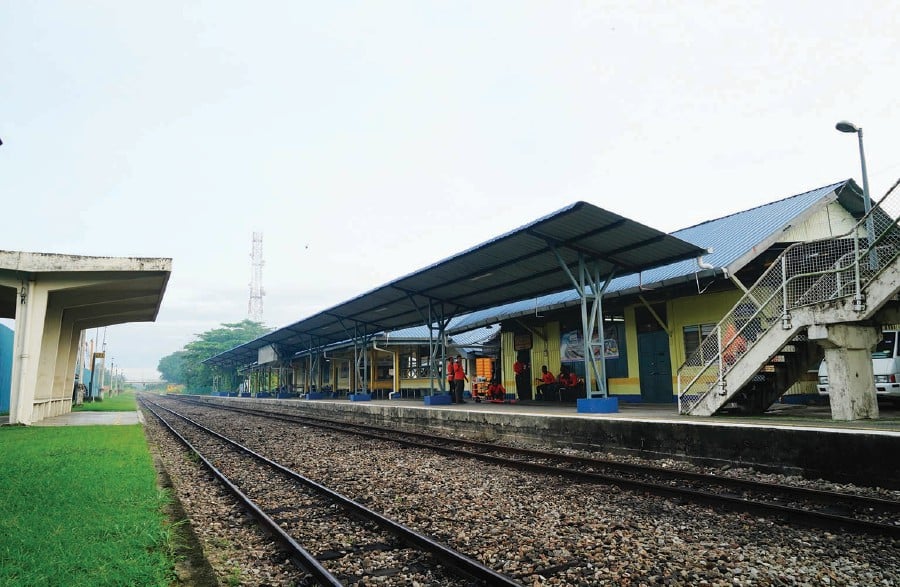EDTP — a game-changer for Johor

The
Kluang station is among the 11 intermediate KTM Southern Line Stations
that will be upgraded with modern design and facilities. YTL PIC
Housing demand and price may rise in several areas in Johor with the launch of the rail service, which is expected by early 2022, according to real estate developers and consultants.
The track runs from Gemas in Negri Sembilan to JB Sentral and covers 197km. It will have 11 intermediate KTM Southern Line stations. The stations are in Segamat, Genuang, Labis, Bekok, Paloh, Kluang, Mengkibol, Rengam, Layang-Layang, Kulai and Kempas Baru.
“The railway line is expected to help spur demand for residential units in the region. Another economic benefit of having a rail link between Gemas and JB is that it will potentially help transform the surrounding areas into a commercial hub that will draw in businesses from across Asia,” they said.
In the past, railway lines, including the light rail transit (LRT) and Klang Valley Mass Rapid Transit (MRT) lines, have played a crucial role in uplifting the real estate profile of areas that it connects. The railway lines have provided a great relief to home-buyers, and daily commuters.
The impact of being close to a station is huge, when it comes to the value of a property.
Some areas along the LRT and MRT lines have seen property prices appreciate by 10-20 per cent, but they are more or less stagnant now because of the current market situation.
“An efficient transport system goes beyond alleviating traffic congestion. In other parts of the world, studies have shown that a city or town which welcomed new rail systems experienced lower travelling costs, faster population, employment and income growth, and a surge in property prices,” said a senior property consultant.
Recap of Gemas-JB
The government awarded the contract for the design, construction, supply, installation, completion, testing, commissioning and maintenance of the EDTP to a Chinese consortium comprising China Railway Construction Corp, China Railway Engineering Corp and China Communication Construction Consortium.
SIPP-YTL JV, a consortium between SIPP Rail Sdn Bhd and Syarikat Pembenaan Yeoh Tiong Lay Sdn Bhd, is the local sub-contractor to the consortium and is responsible for the civil works, including the upgrading all the 11 stations.
According to Datuk Yeoh Seok Hong, managing director of YTL Power International Bhd, the track is about 34 per cent completed and on schedule to finish by October 2021.
Yeoh said the Gemas-JB rail project will lead to an economic spillover for the local community and areas along the stretch.
He added that the line would also cater to the future needs of Johor.
“The project is moving well ... it is on schedule. I think it is an interesting development. This project is the last stretch of train that needs to be electrified. Padang Besar all the way to Gemas has been electrified. Electrifying the Gemas-JB stretch is a very important element to complete the whole infrastructure of the project. I think the government understands that. The new government has evaluated the importance of this project and allowed it to continue. It is critical to finish this stretch so that the rakyat can enjoy it,” Yeoh told NST Property.
Yeoh said the Gemas-JB line, coupled with the JB-Singapore Rapid Transit System (RTS), would also boost travel between JB and Singapore.
Currently, hundreds of thousands of workers commute daily along the causeway.
“The Gemas-JB line meets at the same point as the RTS. Once the Gemas-JB line is done, we can expect more people will park their vehicles at Kulai, Kluang or Kempas and use the train service to get to Singapore via the RTS,” he said.
The new RTS will connect Malaysia from the Bukit Chagar station in JB and Woodlands North in Singapore. It is expected to shorten the travel time between both countries to 30 minutes, from more than one hour currently, and reduce traffic congestion by up to 15 per cent.
With greater connectivity and increased traffic between the two capitals, industries such as retail, accommodation, tourism and logistics would also be boosted, especially in areas located near the rail stations.
Singaporeans are currently the second largest foreign investors in Johor.
No comments:
Post a Comment